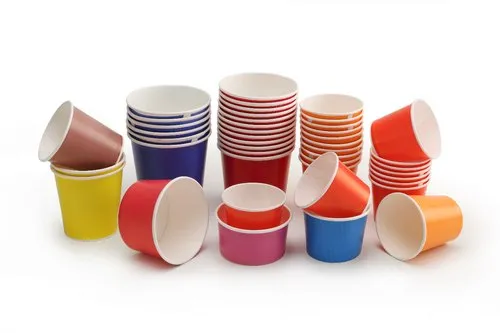Paper cup manufacturing has become a cornerstone of the sustainable packaging industry, offering an eco-conscious alternative to plastic and styrofoam beverage containers. As the global demand for convenient, disposable drinkware continues to rise, so does the emphasis on developing solutions that minimize environmental impact. Paper cups meet this challenge by offering a biodegradable, recyclable, and often compostable option for serving hot and cold drinks in a wide range of settings, from coffee shops to corporate offices and large-scale events. The core advantage of paper cups lies in their renewable base material. Unlike plastic, which is derived from fossil fuels and can take hundreds of years to degrade, paper is made from trees a renewable resource when harvested responsibly. Modern paper cup production often uses paperboard sourced from sustainably managed forests, and manufacturers are increasingly turning to water-based or plant-based coatings that further reduce the cups’ environmental footprint. These coatings replace traditional polyethylene linings, making the cups easier to recycle or compost in commercial facilities.

Innovation in paper cup manufacturing has also led to improvements in durability and insulation. Double-walled and ripple-walled paper cups now provide better heat retention and user comfort, reducing the need for additional sleeves or double-cupping. This efficiency not only cuts down on material use but also improves the consumer experience paper food container manufacturers. Cold drink cups, meanwhile, are designed to resist condensation and prevent leakage, maintaining integrity even under prolonged use. These advancements allow paper cups to match or exceed the functionality of plastic counterparts, making them a practical solution without compromising on sustainability. In addition to material and performance improvements, paper cup manufacturers are also focused on minimizing waste and carbon emissions throughout the production process. Many facilities are implementing closed-loop recycling systems, energy-efficient machinery, and waste-reduction protocols to lower their overall environmental impact. Lifecycle assessments are often conducted to monitor the ecological footprint of each product, ensuring that sustainability claims are backed by measurable data. Beyond their environmental benefits, paper cups support the growing movement toward circular economies.
Their compatibility with recycling and composting infrastructures helps to keep valuable materials in use and out of landfills. When disposed of properly, paper cup manufacturers usa can be transformed into new products such as tissue paper, cardboard, or even new paper cups. Educational initiatives and labeling efforts are helping consumers better understand how to responsibly dispose of paper cups, reinforcing a culture of sustainability. Paper cups are also an essential tool in public health and hygiene. Their single-use nature reduces the risk of contamination, making them ideal for use in healthcare settings, public events, and food service operations. During periods of heightened health awareness, such as pandemics, paper cups offer a hygienic way to serve beverages without the need for extensive sanitation procedures. With ongoing advancements in materials, production processes, and end-of-life management, paper cups are positioned as a sustainable solution for everyday beverage needs. Their role in reducing plastic waste, supporting recycling systems, and promoting hygiene underscores their importance in modern life, proving that convenience and sustainability can go hand in hand.
